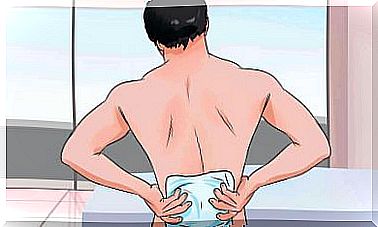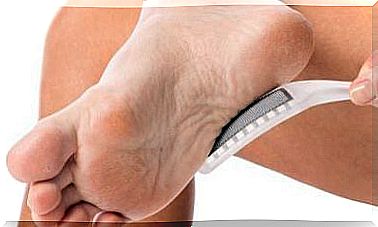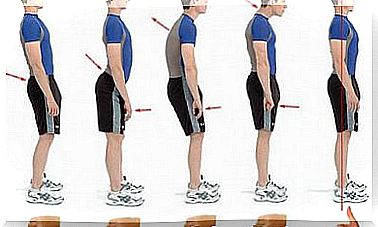Is It Fear Or Hunger?
Sometimes fear and insecurity drive us to overeat. Know if you are hungry or just afraid …
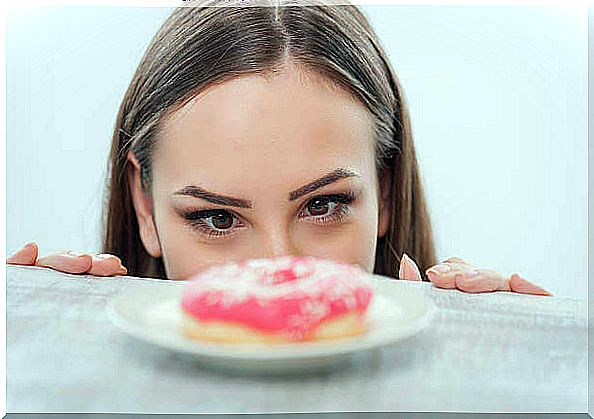
Fear or hunger ? It is important to understand the differences between physical hunger and anxiety in order to control the impulses that lead us to eat without measure.
Do you understand the difference between fear and hunger?
Do you really know the difference between fear and hunger ? Between nervousness and a real feeling of hunger? Between an empty stomach and physical hunger?
As strange as it sounds, most of us don’t know when one ends and the other begins.
The feeling of hunger is an instinct that is regulated by our sympathetic nervous system, as well as by the hormones that evoke this feeling from a clear need: to gain energy for our organism so that our body and our brain can maintain their functions.
But on the other hand cause anxiety, excitement, uncertainty and stress a feeling that hunger feels like: a sinking feeling in the stomach, which we confused with hunger and try to satisfy with food.
It is important to understand the differences between physical hunger and anxiety and anxiety.
In this way, we not only prevent serious health problems such as obesity or diabetes, but also other serious eating disorders such as bulimia nervosa.

Do you feel the difference
The Brazilian Federal University of Uberlândia carried out an interesting study in 2017 in which it uncovered very interesting aspects:
First, that a large part of the population overeat to satisfy anxiety and anxiety. This can happen to all of us from time to time without repetitive and psychopathological behavior forming.
Sometimes we try to consume something very sweet or salty because our brain begs for endorphins and serotonin for that dose.
It is only a fleeting satisfaction, however, as it is not the real hormones in the food, but their substitutes.
Now there are people who have chronic fear, insecurity and too much stress dragged through their entire lives. This psychological discomfort finds its way into diet, in an obsessive and unhealthy way of eating.
Therefore, it is important for everyone to understand the differences between real physical hunger and psychological triggers such as fear.
Real hunger occurs gradually
The first difference between physical hunger and anxiety is that the first occurs when the body needs more energy. This happens when the hours pass and the body burns the reserves of calories to carry out its usual activities.
Hence, it is important to know that physical hunger occurs gradually. We feel a slight feeling that increases more and more until it affects our performance: We gradually feel weak and hungrier.
To avoid this type of hunger, it is recommended to have sufficiently large and filling meals every 4-6 hours. This way you can control your weight and replenish your body’s energy regularly.
On the other hand, fear causes persistent hunger: it is fear, it is desire, it is emptiness … If you feel this, you will feel hunger again immediately after eating.
Even though there is no need to eat, you will still eat, believing that it will get rid of the queasiness in your stomach. It can also happen in the middle of the night!
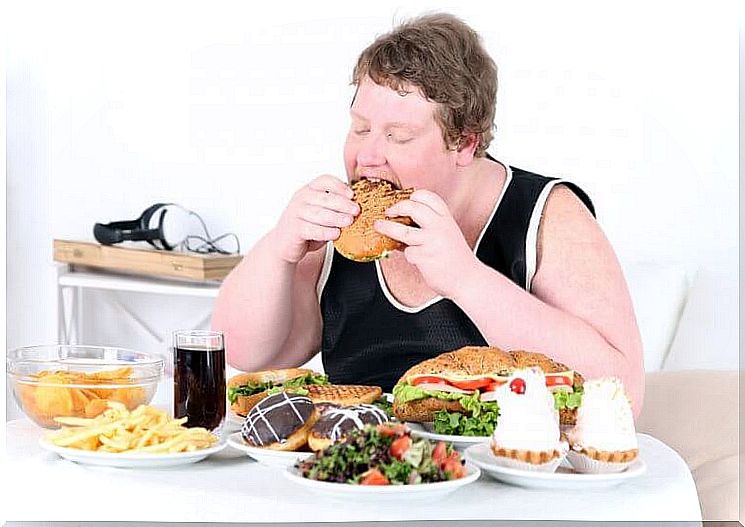
False hunger demands specific food
Another difference between physical hunger and anxiety is that when you are normal, physically hungry, you have no particular desire about what you want to eat.
In this case, your body’s goal is to get the energy it needs. Because of this, you could eat anything.
On the contrary, your body clearly craves high-carbohydrate, sweet or extremely salty foods when you are mentally hungry.
In that case, you’d ditch anything else, healthier, because it’s just not what you want it to be.
During such a hunger attack, it is common to eat highly processed foods with a high content of fat and sugar, for example chips, pastries, sweets, fast food …
The problem with this is that once you’ve consumed these products, you could get into some kind of addiction where you want more junk food every time.

Fear makes you eat even when you are full
When you are hungry, you are usually only giving your body the amount of food it needs. Because of this, as soon as you feel full, you can stop eating.
However, when you are anxious or stressed, you continue to eat as if you hadn’t eaten before. So fear causes us to eat more than necessary.
If you experience anxiety on a regular basis, it is very likely that you are overweight or obese. For this reason, it is important that you learn how to deal with the problem through relaxation techniques. Otherwise, serious metabolic problems could arise.
Eating out of guilt
The word guilt refers to the fact that we feel responsible for something that is wrong.
Physical hunger does not cause guilt because it is a physiological need. This will keep your body healthy and able to continue functioning.
On the contrary, eating out of feeling makes you feel guilty. This is an effect caused by the properties of foods that are high in sugar and unsaturated fats.
If you eat all day, you will feel heavy and you will not be able to go about your usual daily routine without a care.
Hear deep inside yourself: is it hunger or is it fear?
It is important that you can tell the differences between physical hunger and anxiety. Otherwise, you will end up in a cycle of constantly eating to forget about your problems.
It has been shown that consuming high fiber foods like fruits and vegetables can help reduce anxiety. You should also force yourself to follow a low-sugar and low-fat diet.
Analyze your behavior. If you find yourself eating out of fear, stress, or insecurity , seek help from a professional. There are very effective dietary psychological therapies for treating anxiety.

